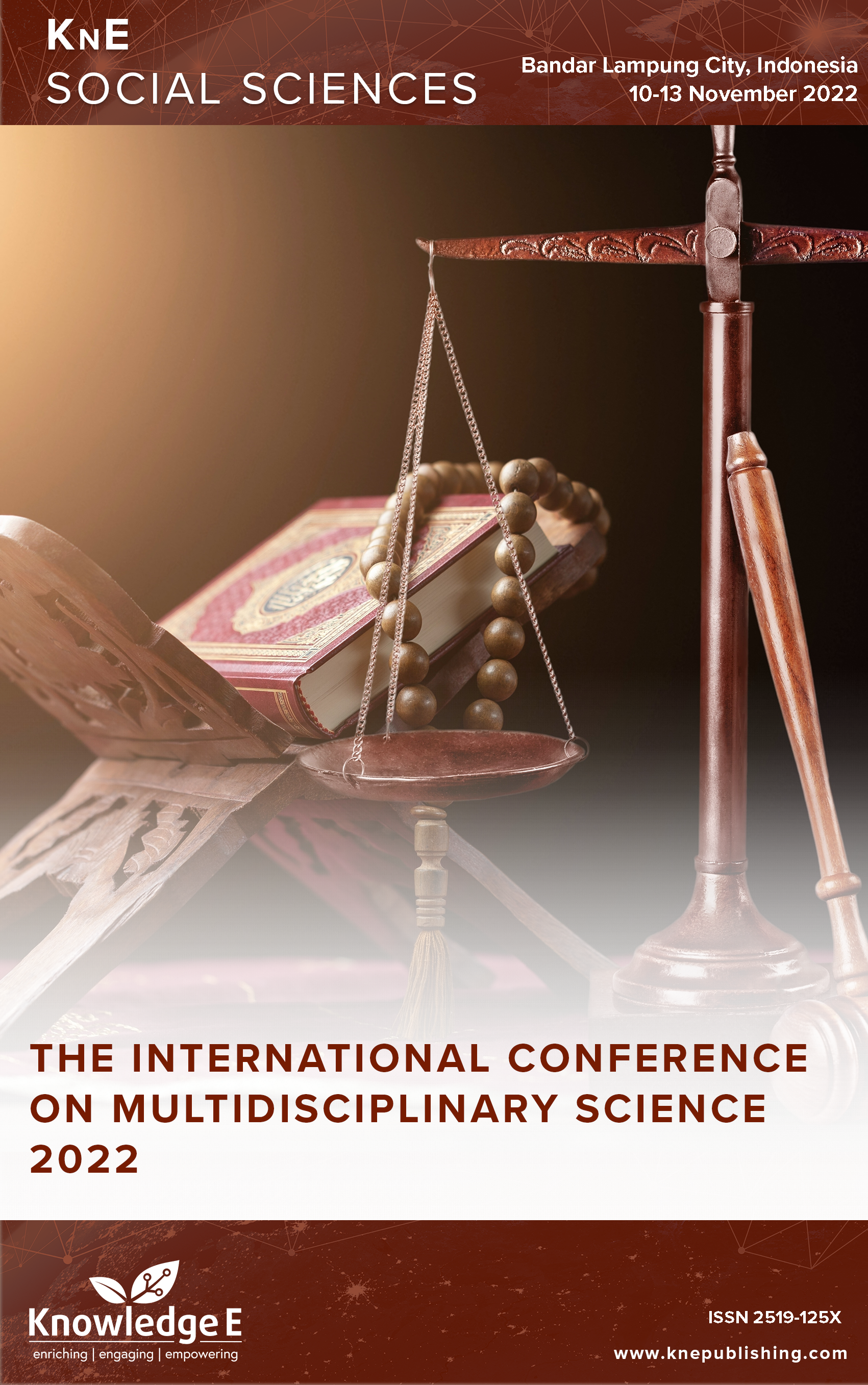The Role and Challenges of Religion on Global Humanitarian Issues: An Islamic Perspective
DOI:
https://doi.org/10.18502/kss.v8i16.14037Abstract
This research aims to describe the roles and challenges of religion in global humanitarian issues from an Islamic perspective. This research is a qualitative type of literature. Data sources were obtained from several scientific articles on this topic, which were accessed from e-journals. Meanwhile, data analysis was done using content analysis. The diversity of texts that motivate human work has led to proliferation of actions in a variety of areas: food aid, expansion of education and healthcare systems, water supplies, and slaves. zakat and waqf Those involved in work derive their human strength from the fact that financing for these structures is guaranteed, which also guarantees professionalism and efficiency, as it is well known that voluntary work has its limits.
Keywords: religious, islamic and human challenges
References
[2] Book Reviews. Int Aff. 2001;77(1).
[3] Schewel B, Wilson EK. Religion and european society: A primer. Religion and European Society: A Primer. 2019.
[4] Pascual C, Graff C. Conclusion and policy implications. In: Confronting Poverty: Weak States and US National Security. 2010.
[5] Guru P, Ibtidaiyah M, Tinggi S, Qur I, Amuntai R, Nasir M. Jurnal basicedu. 2022;6(2):1714–23.
[6] Gusti Yasser Arafat. Membongkar Isi Pesan dan Media dengan Content Analysis Gusti Yasser Arafat UIN Antasari Banjarmasin. J Alhadrah. 2018;17(33):32–48.
[7] Olechowski AP. Impact of armed conflicts on the state of ecological security. confront Coop 1000 Years Polish-German-Russian Relations. 2020;6(1).
[8] O’Grady KA, Orton JD, Christensen LJ. Deep received cosmologies during sensemaking: A mixed-method study of the 2008 Sichuan earthquake. In: 78th Annual Meeting of the Academy of Management, AOM 2018. 2018.
[9] Ngo M. Between humanitarianism and evangelism in faith-based organisations: A case from the African migration route. Between humanitarianism and evangelism in faith-based organisations: A case from the African Migration Route. 2018.
[10] Othman N. Muslim women and the challenge of Islamic fundamentalism/extremism: An overview of Southeast Asian Muslim women’s struggle for human rights and gender equality. Womens Stud Int Forum. 2006;29(4):339–53.
[11] Ndugú CG. Lessons to be learned: An analysis of the final report of Kenya’s truth, justice and reconciliation commission. International Center for Transitional Justice. 2014.
[12] Myers N. Environmental security: What’s new and different? Unknown. 1999.
[13] Rural livelihoods in a context of new scarcities. In: The companion to development studies. 2021.
[14] Marshall K. Global education challenges: Exploring religious dimensions. Int J Educ Dev. 2018;62:184–191.
[15] Harroff-Tavel M. The humanitarian diplomacy of the International Committee of the Red Cross. African Yearb Int Humanit Law. 2006;1–16.
[16] Gantri R El. ICTJ Briefing: Tunisia in transition. ICTJ Briefing. 2015.
[17] Ghotme R, Sicard NG. The Syrian refugees as a regional security “Problem.” Vol. 51, Estudios de Asia y Africa. 2016.
[18] Farr TF. Diplomacy in an age of faith-religious freedom and national security. Foreign Aff. 2008;87:110.
[19] Beigbeder Y. The role and statuts of international humanitarian volunteers and organizations: The right and duty to humanitarian assistance. Vol. 12. Martinus Nijhoff Publishers; 1991.
[20] Ayres CJ. The international trade in conflict minerals: Coltan. Crit Perspect Int Bus. 2012;8(2).
[21] Archibugi D. Democracy for export: principles, practices, lessons. open Democr News Anal. 2009.

